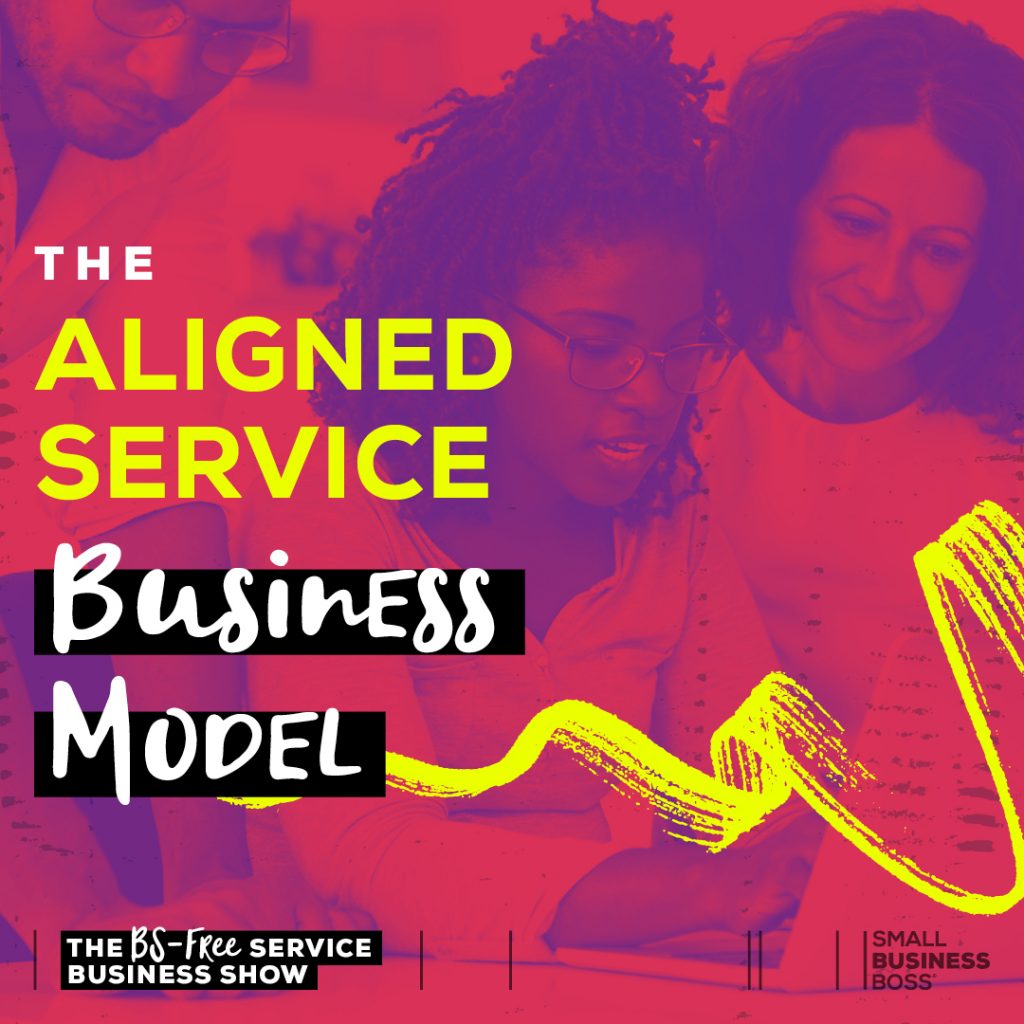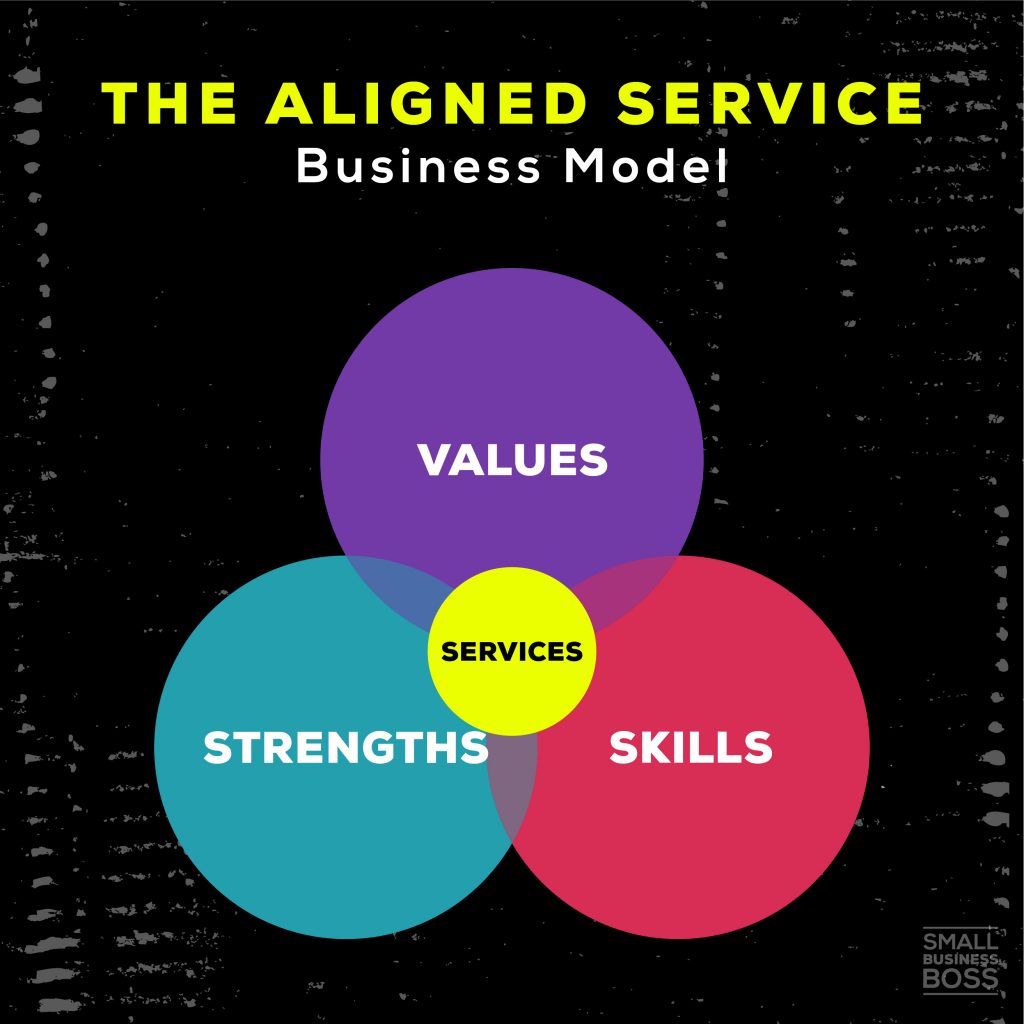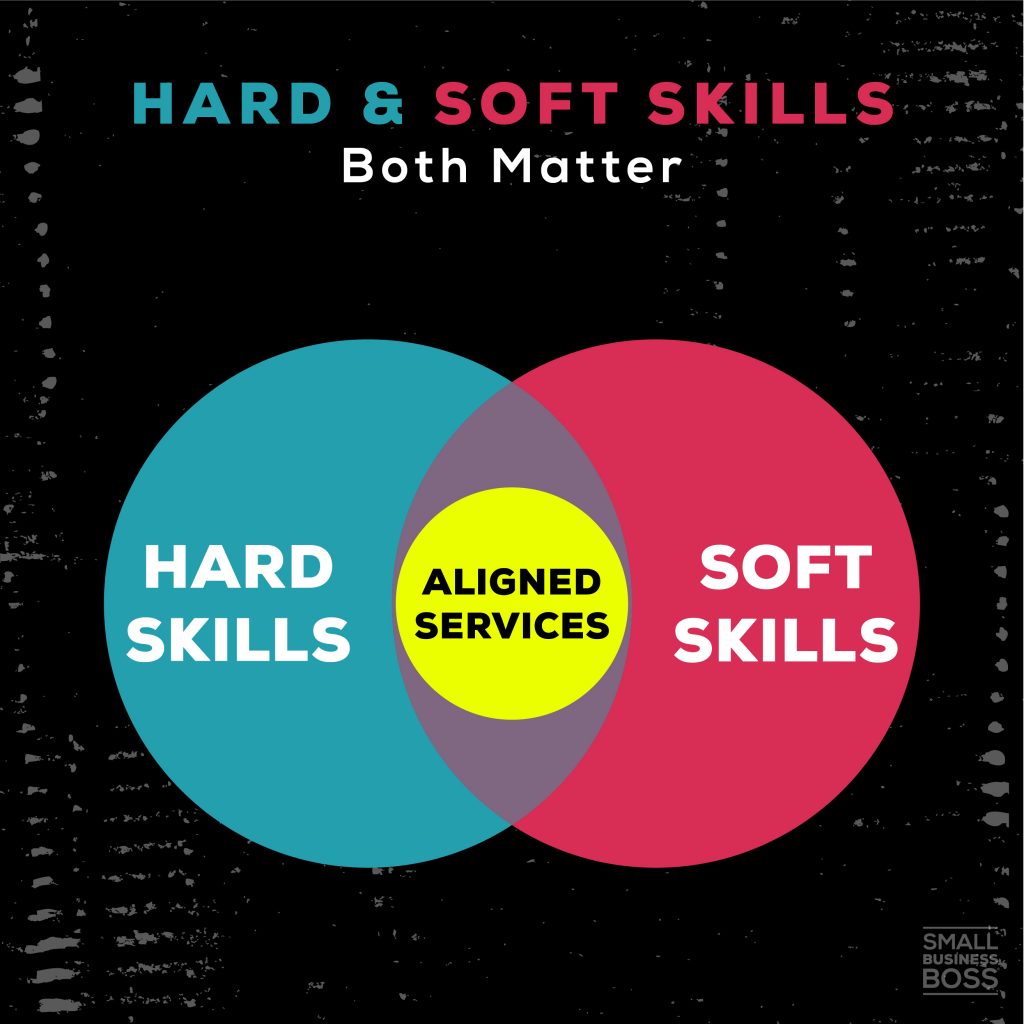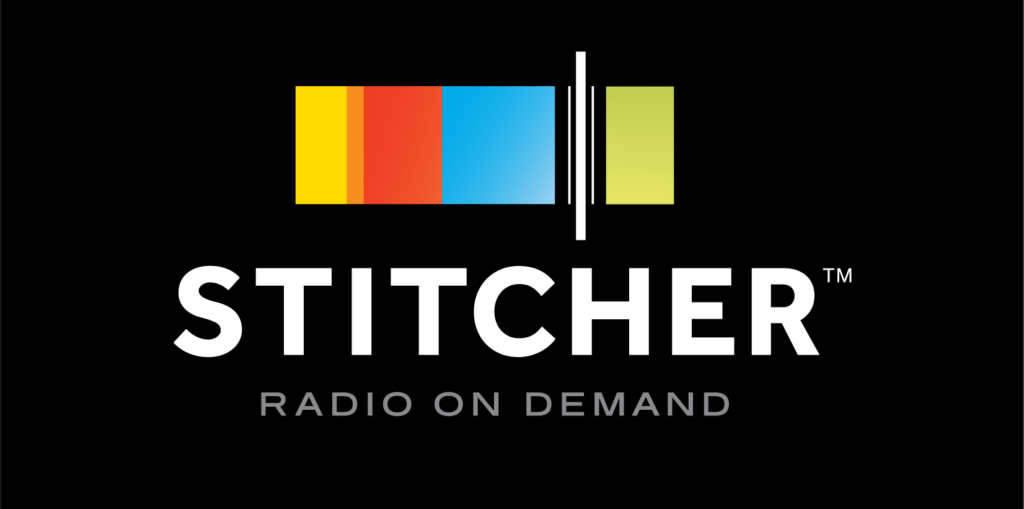
The Aligned Service Business Model
Have you ever felt like your services are out of whack? Or like what you’re selling is a struggle to actually deliver? This is a far too common problem with service business owners, so today we’re looking at the way to align your services with your values, strengths and skills.
In the last episode, I shared some of the specific ways I embrace the complexities and nuances of each client’s unique business. But there’s a much more intangible piece of the puzzle that I want to dig into today.
When you think about your business model, you’re probably like “I offer X type of services” and it feels pretty cut and dried. The problem in doing this is that we distill the complexities of our business down into a single, monolithic business model.
The service business model is definitely a business model, but there are hundreds, if not thousands of factors that shape how we run our business. And like I talked about in last week’s episode, there are many layers based on our industry, who our clients are, stage of business, how we deliver services and more.
This is why the cookie-cutter version of “here’s how to run a service business” doesn’t automatically work for most of us.
The Aligned Service Business Model
Beyond what we explored in last week’s episode, there’s another facet to this when it comes to our services. And honestly, this is where I feel like so many of us get things backward. We get so focused on what we think we’re supposed to be doing that we ignore the critical components of what it takes to run a service business that’s best aligned for us.
That’s where the aligned service business model comes in.
Many times when we start our business, we do it based on our skills (in particular our hard skills) alone. We look at our hard skills and think, okay, perfect, that’s what I should be doing for my services or offerings.
I know that’s where I started out. I knew I could do PR, and I had experience in tech, so those were the services I offered. Over time, I noticed that was only part of the puzzle, and over the years, as I’ve layered in my other, soft skills, along with my values and strengths, my business has become more and more aligned.
Values are pretty self-explanatory, and we’ll be doing a full episode soon with a guest on how to bake your values into your business. So many times we look at our businesses as being separate from ourselves, and this is one case where we need to bring our personal values to the work we do.
For example, with Small Business Boss, our values are at the heart of what we do, and they guide our services. Our masterminds are high-touch as we’re committed to putting people before profits, and that no one is a number. That means how we design and deliver masterminds are rooted in those values.
For strengths, you know all those personality tests you love taking? That’s about what your strengths are. It’s easy to get your skills and your strengths mixed up, so let me give you an example.
My top strength in Gallup Strengths Finder is Strategic. That means I create “alternative ways to proceed. Faced with any given scenario, you can quickly spot the relevant patterns and issues.” While accurate, it doesn’t mean I’ve not developed skills that aren’t my strengths, like for example, wrangling details and being ultra-organized.
But my most aligned services and use of my brainpower will always be where my values, skills and strengths overlap.

Today, my services are aligned as I’m not just basing it on pure hard skills, because let’s be real, in many cases, hard skills are a commodity, and when you focus purely on those it’s hard to compete.
What Can You Really Compete On?
When you run a service business, there are a few different ways you can compete, or in nicer terms, make yourself the clear choice for potential clients.
These include:
- Price – How much you charge.
- Process – How you do things
- Performance – The results you deliver
- People – Your trust factor and soft skills
While all of these matter, the one that many of us underutilize is people, because the reality is that a service business is a business about people. And your relationships with people are rooted in trust.
This is where your soft skills come in, as your hard skills don’t matter if you can’t do the people part of it. No client will care about the results you delivered if they had a bad experience.
Your hard skills are the ones that are quantifiable, specific and easily defined, while your soft skills are much more nebulous. Typically soft skills are hard to measure or define, but they’re universally valued.
Your soft skills are where lasting client relationships are built, and some will be valued more than others. Plus, your soft skills help you over time improve all aspects of your business.

Before talking more about soft skills, I want to acknowledge that for some of you this may seem like too much extra work. I get it. It’s easier to decide what you’re doing to take a class on a hard skill than to work on less tangible soft skills.
To give you a little inspiration, I have complete faith that a big reason that clients hire me is for my soft skills. On the agency side, we’re one of the thousands of agencies, many of whom I’m sure deliver outstanding results and have processes that are top-notch.
However, our clients value their relationship with us, they trust us, and our soft skills are the real basis of this. Yes, we can get the job done, but we’re able to do it in a way that’s unique to us.
What Alignment is REALLY About
Before we talk about some of the soft skills that are essential to building relationships, and ultimately trust as a service-based business owner, I want to call something out first.
When it comes to your soft skills, you need to honor your abilities. We’re all hardwired in different ways, and not every soft skill is going to be something that you naturally excel at. In fact, there may be some you struggle with, and that’s okay. Focus on what works best for you as you build a service business that’s aligned for you.
That’s why I’ve used the word aligned. It’s about knowing how your values, strengths and skills all work together, not trying to force you into some mold that doesn’t work for you.
As someone who’s neurodivergent, there are certain things that simply will never ever work for me.
A small example of this is that as a writer, often clients like to review copy together and provide feedback. Because of how I process information, that’s not something I’m able to do without an extreme amount of effort. After learning the hard way, I now have a clear boundary around that and we articulate how to best provide feedback via Google Docs.
That’s what being aligned is about. A big-name copywriter coach may teach a process for your services where you do a live copy review with the client, but if that doesn’t work for you, you’re never going to excel with that process.
Let’s Talk About Soft Skills
As you think about your skills, you’re likely thinking about what soft skills you bring to the work you do.
As a leader, visionary, and business owner (even if you’re a team of one right now), specific skills can help you excel in a client-based business.
This is by no means an exhaustive list, but here are a few that are most relevant:
- Creative Thinking: Your clients want a thought partner, and you need to be able to generate new ideas and approaches to how to do things.
- Hyperfocus: In the attention economy our focus is fractured. Your ability to hyperfocus ensures you do what matters most and you can deliver for your clients.
- Emotional intelligence: The ability to recognize and understand emotions in yourself and others so you can make better decisions.
- Critical Thinking: This is about analyzing information to make a decision. Given the number of decisions we have to make as business owners, your critical thinking skills help you solve problems effectively.
- Communications: This is a make or break soft skill when working with clients, and it’s the combination of active listening, writing as well as verbal/non-verbal communication.
As you think about your soft skills, remember, these aren’t fixed, which means there’s room for continuous improvement. In the context of building a service business that’s aligned for you, which ones are most vital and where are your learning edges?
In terms of developing them, it may be a matter of specific training, or as simple as finding the right podcast or book. If you’re feeling overwhelmed, think about where you can shine with your services and best serve your clients.
Hint: It’s probably already there, and it’s something you can further develop.
Case in point: As a communications professional, I’ve not just decided that I’m good enough with my comms skills. I’m always looking for ways to improve what we’re doing and to build on my existing skills. And those communications soft skills are a big part of our service businesses are aligned with my skills, values and strengths.
Remember, the point here is to develop what will serve you and your clients, not just what your clients want, so think carefully about what serves everyone involved. So many times the reason people quit services is that they never find alignment so they’re lured away by promises of a simpler business model.
I’m hoping that everything we’ve covered in this episode has your wheels turning about how you can build a service business that’s truly in alignment for you. There’s no one-size-fits-all approach to how you do this no matter what that celebrity entrepreneur may be telling you over on Instagram.
If you enjoyed this conversation, I want to invite you to join us in one of our masterminds. The BS-Free Service Business Mastermind is opening soon for an October 1st start, so head on over to our masterminds page to get the details.


